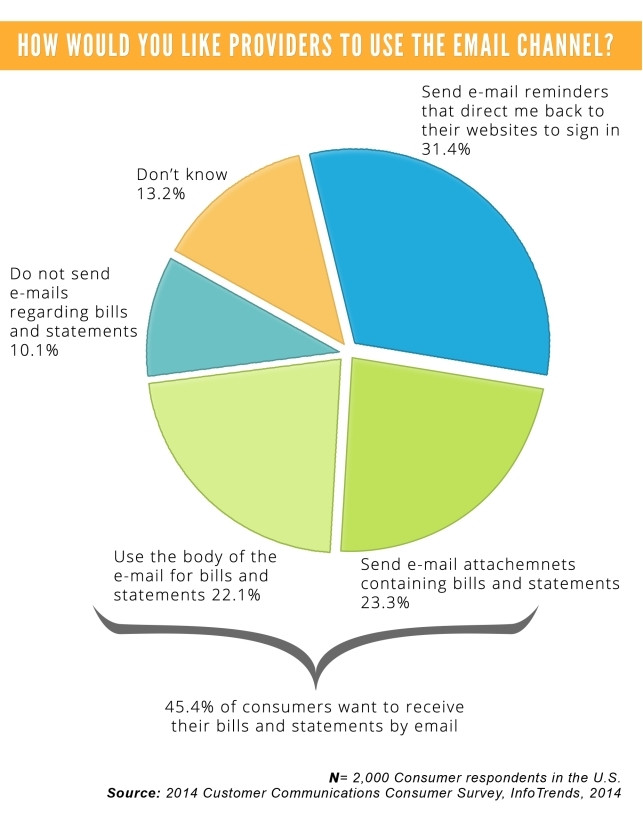
An area of considerable expense to the majority of consumer-facing companies is inbound calls. "Companies can cut their call centre costs dramatically by converting costly customer help desk calls to e-mail-based communications," says Brent Haumann, Head of Development at Striata.
Furthermore effective customer communications is a key business driver and competitive differentiator for businesses today. This means consumer-facing companies need to ensure their call centres have adapted adequately to support this focus."
A good customer experience means higher revenue for businesses as it is a strong driving force in customer loyalty and retention. How well consumer facing companies communicate with their customers is vital in today's competitive environment. Haumann states that it's not just about having a call centre that takes and routes calls anymore ? it's about providing a great customer experience by communicating with customers whenever, wherever and via their electronic channel of choice - e-mail.
Based on ExactTarget's 2012 Channel Preference Survey of 1 481 US online consumers, 76% of them said they prefer e-mail over all other channels for customer service messages.
Recent independent consumer research results, as shown in image below, also indicates that consumers prefer e-mail over any other form of electronic communication.
The digital relationship is thus in place...
The advantages of handling queries via e-mail
For the consumer:
* E-mail is the preferred medium of choice.
* It is far quicker to send a query via email, than it is to navigate an IVR and/or talk to a call centre representative.
* An immediate 'auto-response' is received, giving assurance of a further expected response and an escalation path should the required response not be satisfactory.
* A 'ticket number' is issued, allowing the query to be tracked.
* Consumers are able to submit queries 24 hours a day even if contact centres are not open at that time.
* Intelligent routing ensures that the correct customer service group receives the relevant query.
For the company:
* Staff overheads are significantly reduced as queries are received electronically.
* By allowing a response time of between 12 and 24 hours; call volume 'peaks and troughs' are reduced.
* Responding to an email query is up to 40% faster than taking an incoming call.
* Tracking of a query is far more efficient due to the 'ticket number' process.
* Attaching a query to a customer master record can be a fully automated process.
* Automated escalation procedures ensure proactive monitoring of your customer service levels.
* Targeted marketing on outgoing email responses ensures marketing opportunities traditionally sold through an IVR system are not lost.
Consistent, intelligent e-mail interactions across multiple channels
With Striata eContact, companies can route incoming e-mails to the relevant queues and have assigned agents respond to them accordingly. "The system caters for moderation and escalation of messages based on specific criteria. The performance of the agents and the queues can be monitored through a set of predefined reports," explains Haumann.
Messages sent out from Striata's eContact platform can be wrapped in HTML stationary (managed per queue) to improve communication, branding and up-selling to existing customers.
Haumann says the solution also provides an easy to use consolidated view of a customer's electronic (e-mail) interaction history which allows for easier tracking and thus quicker response and resolution of queries. Furthermore, it generates valuable statistics on the number of queries/communications fielded by department or category.
Another advantage is that the system is designed to manage large amounts of e-mail and can scale from a small travel agency to a large bank.
With Striata eContact, businesses can ultimately improve the management and efficiency of incoming emails from their customer base, ensuring that issues are resolved within a reasonable time frame. This enhances the customer experience, which in turn drives loyalty and retention while businesses enjoy a reduction in inbound calls and the associated costs.
Brent Haumann - Head of development at Striata

After starting out as an IT consultant, Haumann soon found his niche in IT project management. His focus was on business analysis, process improvement and project managing software implementations for large corporates. He then moved into the challenging and complex world of software construction and now holds the position of Head of development at Striata. Using lean principles, he is responsible for the art and science of planning and leading software development projects.
Share
Striata
Striata unlocks the power of email and mobile messaging
The company's electronic delivery solutions dramatically increase customer adoption of paperless bills, statements, policies, marketing and other high volume system-generated documents.
The world's largest financial services, utility, insurance, retail and telecommunications companies achieve unrivalled results by replacing print and mail with Striata's interactive electronic documents and transactional messages.
Striata's enterprise platform, strategy and support services:
* drive significant paper suppression
* deliver ongoing cost savings
* accelerate payments
* enhance the customer experience
* enable regulatory compliance
Its comprehensive solutions expand the digital dialogue through personalised customer life cycle messaging, retail receipts, notifications and alerts.
A global paperless communications specialist with over a decade of experience, Striata has operations in New York, London, Johannesburg, Hong Kong, Sydney and partners in North and Latin America, Europe and Asia Pacific.
Editorial contacts